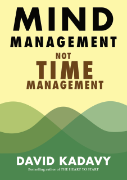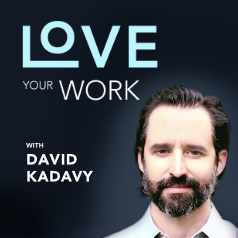Subscribe to blog updates via email »
My Federal Court Jury Duty Experience
I was recently summoned to serve as a juror in the United States District Court for the District of Nebraska, in the Roman L. Hruska U.S. Courthouse here in Omaha. I was originally scheduled to start on April 4th, but earlier this week, they called me and said that the judge wanted to get the case underway and wanted us to come in early (April 1). Rather than the response I should have given (“Sorry, I have already scheduled something for that day, had I known that was the day I would need to start, I could have kept my schedule open”), I agreed to come in. Here is what the experience was like.
Getting Started / Orientation
As instructed, I called in the night before to double-check that I was scheduled to appear, and I was. So I came in at 7:45 AM and was lead into a room full of other prospective jurors sitting at tiny tables, and televisions blaring about the Pope’s condition. First I was asked to fill out a short worksheet that just asked me to confirm my marital and employment status, and some other simple things.

WANT TO WRITE A BOOK?
Download your FREE copy of How to Write a Book »
(for a limited time)
After waiting about 45 minutes in the juror room, we were all lead into a courtroom where the judge came in and introduced himself. He explained everything plainly, describing the random process used to choose us as prospective jurors and what the remainder of the day had in store for us. After swearing us all in as a group, he then asked us as a group some basic questions to weed out any people who might not be legally allowed to sit on the jury on the particular case (“Are you related to anyone who might be a witness in this case?”, etc.). He also asked some opt-out questions (“Are any of you over 70 and do not wish to serve?”, “Would serving on this jury cause any of you undue hardship?”). One woman actually raised her hand and said that she had alot of deadlines at work (as if we all don’t). She actually got out of it at that point, after discussing it with the judge privately.
The judge then gave us all a tour of the courtroom. In this particular courtroom, technology seemed to be more important than people. There were about a dozen computer monitors in the courtroom: one in front of the judge, one in front of the bailiff, on the witness stand, on the tables for the prosecution and the defense. What was really strange to me was that there were microphones for everyone, so lawyers would actually have to examine witnesses while seated at their table about 40 feet from the witness stand. I imagine this would completely change the dynamic of examining a witness. Rather than a court stenographer, this judge prefers to just record everything, so if someone is saying something, it has to be into a microphone.
Selection
After waiting in the juror room again for about half an hour, we were lead back into the courtroom, where 31 of the 35 people present were seated in the courtroom. Some were seated in the juror’s box, and the rest were seated in other chairs beyond the spectator area. The prosecuting attorney, the defense attorney and the defendant were all seated in their designated places. I found it a little disturbing that the defendant was black, and all of the prospective jurors were as white as could be. So much for a jury of your peers, but that’s what you get when you randomly select 35 people in Nebraska.
After a microphone was passed around allowing each prospective juror to introduce themselves (we were given a guide sheet telling us to state our name, marital status, children, occupation, and spouses occupation), the attorneys took turns asking questions more specific to the case. The defendant was charged with running a booking agency. After we were all sworn in as a group, he asked if we knew any of the people involved in the case. Some people recognized some of the names of the witnesses or of the attorneys who worked for the same firms as the counsel in this case. Those people were asked to elaborate, speaking into a microphone (which was passed around and was distracting and inconvenient), and were asked if their relationship would affect their judgment of the case and all said “no,” except for one gentleman, so he was excused. He was then replaced with one of the four people who were not originally seated. We were then asked if any of us thought that gambling should not be a crime. Nobody responded.
We were also asked if any of us would have any issues with believing a criminal witness that had been paid by the government to testify. I voiced concern over this, asking if there would be incentive for a witness to testify a certain way to secure future “gigs”. As the judge said that he wouldn’t allow the prosecuting attorney to answer the question, the defense attorney was shaking his head “yes” violently. My question seemed to cause a bit of ruckass, with each attorney attempting to asking me their own leading question that was then struck down by the judge, who finally explained that he would provide us with materials to assist us in determining the credibility of witnesses. We continued.
The defense attorney was sure to use buzz phrases like “all white jury”, and asked us if we would have any issues with being impartial in a courthouse paid for by the government, with the government prosecuting “this lone individual.” His questions in particular seemed less about weeding people out and more about changing our perception.
The social pressures surrounding the prospect of responding to any of these questions are great. You are in a room of over 40 people, and unless you want to announce that you’d like to talk about it in private, you must wait for a microphone to be passed to you and answer your question into it. This may explain why when the defense attorney asked if anyone on the prospective jury had worked in an office environment where there are pools to bet on sports, not a single of the 31 prospective jurors made a peep. Mind you, everyone had been sworn in.
If one did have something they wanted to speak about in private, the judge would call a “bench conference”, and the individual would approach the bench along with the lawyers. The judge would then turn on a white noise machine to drown out the noise. This was pretty comical when the bench conference would be over and the judge would turn it off, only to have one of the lawyers turn back around to say more, forcing the judge to quickly turn it back on.
Peremptory Challenges
After questions had been addressed, the judges passed a seating chart back and forth, making their peremptory challenges. I was not surprisingly eliminated, probably related to the concerns I voiced about paid witnesses. I also noticed that people who knew people related to the case were eliminated, and people who had been on juries before (there were about five cases among the three of them, and they were all guilty verdicts). Also, some people who hadn’t spoken at all were eliminated: a very old man, and a professional woman were a couple that I noticed. It seemed that people who had responded to the questions had a high incidence of being eliminated.
…And I Was Done
I walked out at noon feeling very relieved. Had I been chosen for the case, I would have been out of the office most of that day, and then Monday through Wednesday of the next week. I have many things going on at work, and am busy building my curriculum for the class I am teaching, but I was nonetheless willing to serve.
While jury duty is no doubt an inconvenience, it’s kind of amusing to hear people complain about having to serve. They will talk about how much work they have to do with seemingly no regard for what a remarkable and hard earned duty and privilege it is to be involved in the process. Their employer may even encourage this behavior, giving them advice on how to get out of jury duty, or failing to make the proper scheduling adjustments to accommodate their employee’s potential absence. We all owe society serious consideration of this duty.



